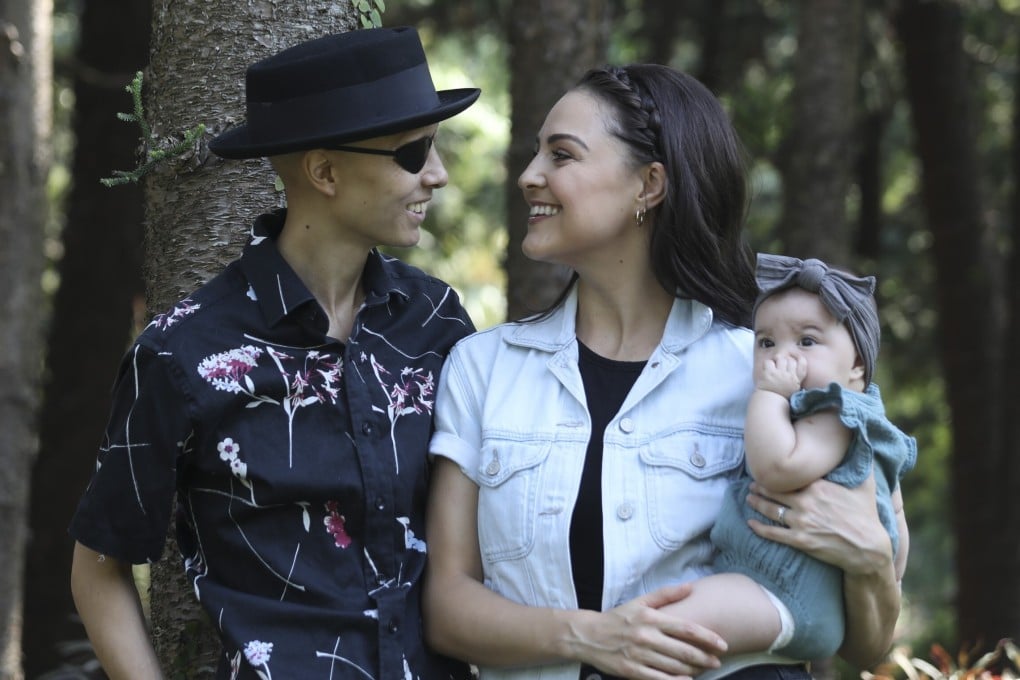Grow, learn, heal: how this filmmaker is living with cancer, and using every moment as a gift
- Australian-born Joshua Wong has a rare form of cancer, but he and his wife ‘chose to continue to chase what we’re passionate about’ in spite of the diagnosis
- The idea for a film, The Calm Beyond, came to him during an MRI scan. It’s about surviving a storm and ‘how you live after’, and has just had its premiere

Fear and uncertainty are constants for many of us, and Australian-born Chinese filmmaker Joshua Wong is acutely familiar with these feelings. Wong is battling advanced adenoid cystic carcinoma (ACC), a rare form of cancer that begins in the glandular tissues. It has spread through his body to his lungs, brain, spine and skull.
“I can’t tell you how long the road is ahead of me … we never know how long the road ahead is,” says the 42-year-old Hongkonger. Wong, who has lost sight in one eye, has learned to live life to the full. He told the Post what he has discovered on his journey – things which influenced his first feature film, The Calm Beyond.
ACC typically occurs in the salivary glands in the head and neck. Research on its prevalence in Asia is limited, and doctors don’t know what causes it. It affects 1,200 people in the United States annually, according to the country’s National Organisation for Rare Disorders.
After years of doctor visits to establish the cause of his pain, imaging scans and a biopsy in 2018 led to a diagnosis of ACC and, with surgery and radiation, Wong was able to win the first round of his fight with the disease.

In February, Wong began to feel unwell again. “I was working out and doing normal stuff when I felt shortness of breath,” he recalls.
Scans showed the cancer had returned, and there were multiple growths in his body. An oncologist told him his prospects were bleak, that metastatic (or spreading) ACC can “shorten one’s life to a matter of months”, and that chemotherapy wasn’t effective for his cancer.